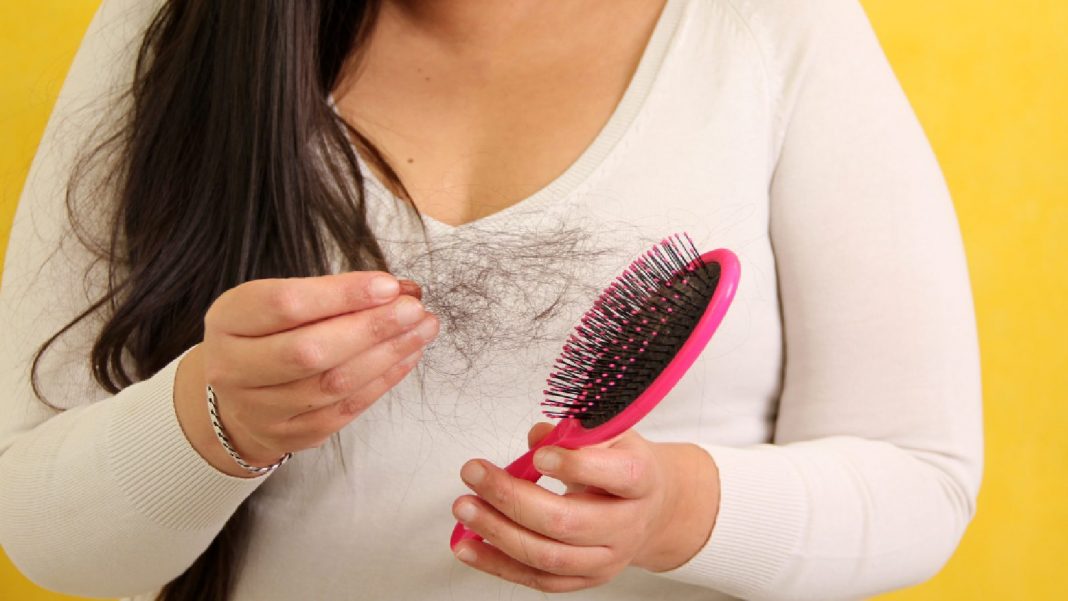While welcoming your bundle of joy home is a feeling that nothing can surpass, often new mothers experience extreme hair fall. This is common among other changes some time after delivery. Postpartum hair loss can happen any time after three months from the delivery, and can last up to six months. While this is inevitable, there are ways to control postpartum hair fall.
What causes postpartum hair loss?
Postpartum hormones can affect your hair due to the sudden decrease in estrogen and progesterone levels, which disrupts the hair growth cycle. “This shift from the anagen (hair growth phase) to the telogen (hair shedding phase) phase results in postpartum hair loss. Moreover, reduced blood circulation and potential nutrient deficiencies can exacerbate this condition,” says dermatologist Dr Priyanka Kuri.
Is postpartum hair loss normal?
After giving birth, there is a rapid decline in certain hormones in the body, causing the hair growth phase (anagen phase) to transition to the hair shedding phase (telogen phase), resulting in hair loss. Additionally, the physical stress experienced during childbirth, such as the labour process, can further contribute to postpartum hair fall. Reduced blood circulation and poor nutritional habits can amplify the effects of hair loss during this period.
However, it can happen to just about any new mom. “Postpartum hair loss is considered normal during the first three to four months after childbirth and stays for 6 months. However, if excessive shedding persists beyond 6 months, it may indicate a more serious condition such as chronic telogen effluvium. Various factors, including inadequate nutrition, sleep deprivation, and heightened stress levels, can contribute to the severity of postpartum hair loss, explains Dr Kuri.

Can you avoid postpartum hair loss?
There are many basic and practical ways to minimise postpartum hair loss. These ways are beneficial for the overall health of the new mother as well and will only bear good results.
1. Healthy diet
Post the birth of a baby, focus must be on maintaining a nutritious diet. This diet should consist of green and colourful vegetables, fruits, nuts, and dry fruits. The new mom must have a balanced diet.
2. Limit sugar intake
Excessive sugar effects blood circulation. And once this happens, blood is not able to effectively reach your hair follicles. This causes nutrients to not reach your hair, and thus, hampers healthy hair growth.
Select Topics of your interest and let us customize your feed.
3. Iron supplements
It is very important for new mothers to continue taking iron supplements for at least six months. Excessive bleeding after delivery as well as breastfeeding can often take a toll on your iron stores.
4. Monitor sugar and thyroid levels
Regularly monitoring sugar and thyroid levels can also help prevent excessive hair loss.
5. Avoid styling
Unless it’s absolutely essential, try and skip the styling as this will definitely effect hair growth. Additionally, avoid using heat tools and salon procedures during this period and
6. Seek professional help
Consult a dermatologist for appropriate hair serums and supplements.
How long does postpartum hair loss last?
Losing significant amount of hair every day can be traumatic for every woman. One might find oneself wondering as to how long it would last. Another pertinent question that comes to mind is that while my hair every grow back to the volume I had during pregnancy or before that? Well, the good news is that does end soon, and the hair will grow back to its original volume over the course of one or two years.
“Postpartum hair loss typically lasts for about three to six months post-delivery, and it may take up to two years to fully regain the lost hair volume, and if it exceeds six months it is considered chronic,” says Dr Kuri.
But it is very important to remember that prioritising a healthy lifestyle is essential. Make sure to eat a nutrient-rich diet, as this goes a long way. Good self-care practices are often very important to facilitate the restoration of hair volume over time, and these must be taken care of. Being mentally and physically prepared for the challenges that come with pregnancy and postpartum recovery is also essential.







